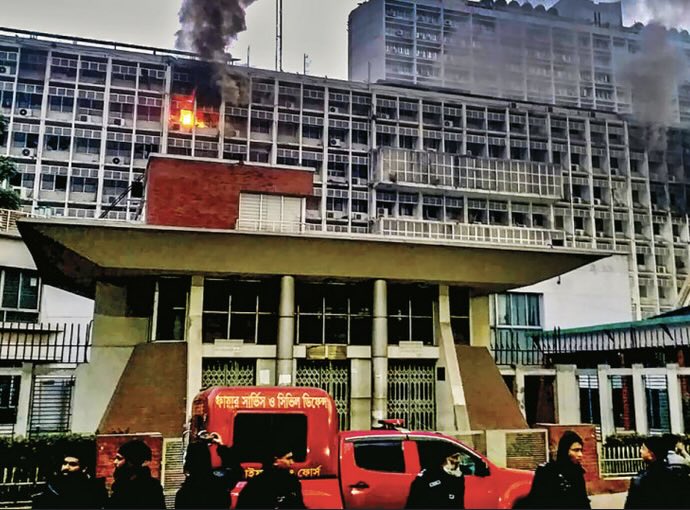
Fire at Bangladesh Secretariat Sparks Debate on Interim Government’s Credibility
The recent fire at sections of the Bangladesh Secretariat building in the capital, which destroyed critical documents and caused extensive damage, has ignited widespread concern and criticism. The incident has led many to question the credibility and capacity of the Interim Government (IG) led by Professor Muhammad Yunus, which has been in power for the past four months.
Critics argue that the fire reflects a broader failure of the IG to ensure basic safety and security of vital government assets. Concerns over their ability to address pressing national challenges, including law and order restoration, depoliticization of the bureaucracy, and corruption control, have intensified in light of this incident.
While these criticisms highlight serious shortcomings, analysts emphasize the need for a nuanced assessment of the IG’s performance. The government’s limitations must be understood within the political and institutional landscape it inherited. When Professor Yunus took charge, the IG faced a nation rife with uncertainty following a period of upheaval.
Despite these challenges, some successes have been acknowledged. The IG’s formation and leadership provided a semblance of stability in the wake of unrest, guiding the country through a delicate transitional phase. Observers stress that a balanced evaluation of its failures and achievements is crucial to devising a constructive path forward.
The fire has become a turning point, not just in questioning the IG’s credibility but also in sparking dialogue on the country’s governance and institutional reform. As the IG continues to navigate its tenure, the nation looks to its leadership for reassurance and concrete action in addressing these critical concerns.
